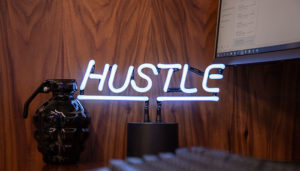
Starting a business as an owner-operator offers many great opportunities! Among these are negotiating power, setting your schedule, and generally being your boss. However, you have to start right if you want to succeed.
1. Write a Plan
A business plan is vital for you in starting your business. In your business plan, you have to ensure that you lay out your expectations. You should include things like expected revenue, expenses, salary, etc.
2. Get A CDL
Under federal law, to drive a commercial vehicle, you need to have a Commercial Drivers License (CDL). There are many ways to go about this. Many trucking companies will have training programs & some will help pay for CDL school. Doing it this way is a popular choice.
3. Establish Your Company
There are many choices you have when starting your company. First and foremost is ensuring you are organizing yourself in the right way. There are many ways you can set up your company. A
mong these are a sole proprietorship, partnership, LLC, or another type of corporation (S-corp, C-corp, etc.). As an owner-operator, one of the most common choices is to set up as an LLC. LLCs are generally favored as they provide a legal boundary between your assets and those of the company.
4. Getting the Equipment
Starting your business will be expensive. You are going to need a tractor &/or trailer. It is necessary to know what types of cargo you will be transporting. Doing this is fundamental to ensure that your equipment is right for the kind of things you are shipping.
5. Operations & Compliance
When trucking, you must ensure proper compliance with the rules and regulations of the industry. You have to ensure you have a USDOT Number, Operating Authority, an IRP registration, an IFTA decal, and a BOC-3 filing. Failure to have any of these may result in hefty fines & potentially your company getting shut down. It’s also essential that you ensure that you know where you will find your loads, deal with your accounting and other administrative things. You may consider hiring a dedicated accountant should your business need it.
6. Insurance
To operate your business, you must have some types of insurance & you ought to have others. You are required to have primary liability insurance. The minimum for this is at least $750,000, although many brokers mandate $1M, this will cover accidents where you are at fault. Cargo insurance is usual, but it is not mandatory. Having $100k of coverage is common, although you may need more or less depending on what you are hauling. Cargo insurance covers damage or theft of your cargo. Physical damage insurance covers accidents where you are not at fault. Lastly, bobtail insurance covers your truck when not carrying a load for someone else.
7.Find Loads & Grow
Once you have established your company and jumped through the regulatory hurdles, you need to find freight. There are two ways to go about this. One way is to use load boards; the other is to work on a direct customer relationship. The DAT load board is one of the most popular load boards.
All in all, starting a trucking company, like starting any other company, takes time, dedication, money, and energy. But, like starting any other company, it will never happen if you don’t go out and do it. The only thing that will 100% guarantee failure is to not start in the first place. Here at the Freight Guru, we have experience building a trucking company from the ground up. But getting started is just the first step; make sure you tune in to the podcast to get more tips and tricks for growing your operation.